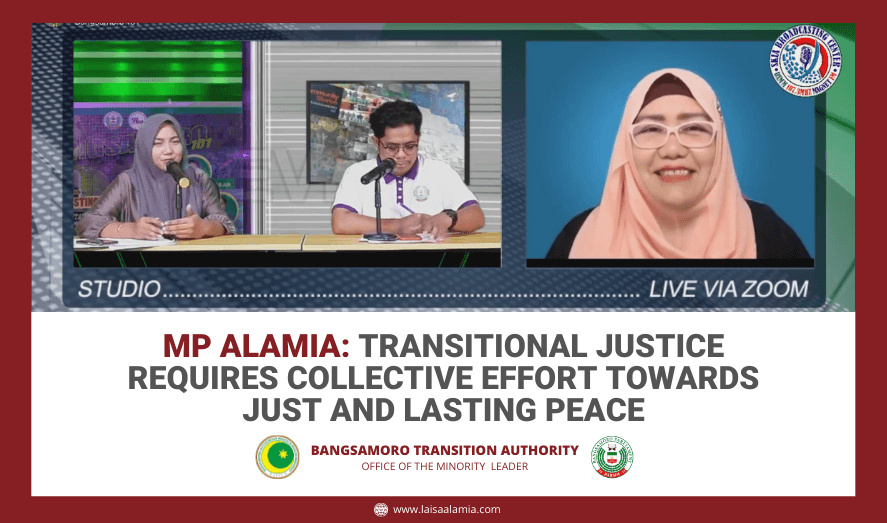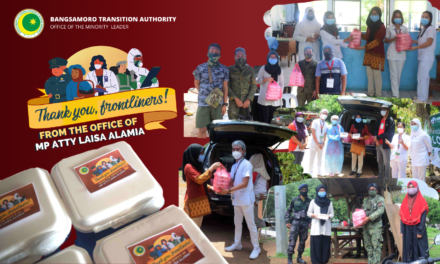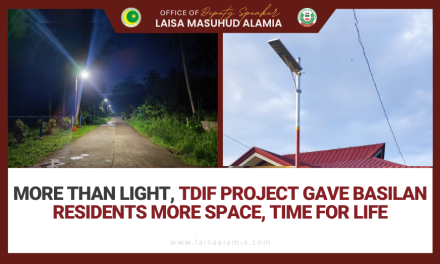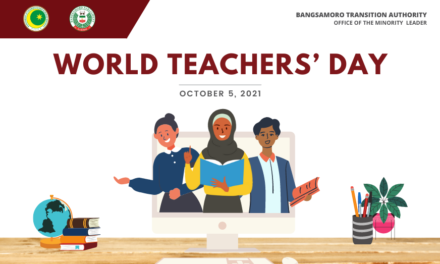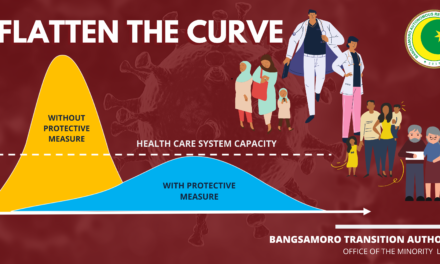Minority Floor Leader MP Atty. Laisa Masuhud Alamia joined Bangsamoro 101 hosts Nor-ain Lambitan and Haron Sakilan on July 14, Wednesday, to discuss basic principles of transitional justice and reconciliation and how these apply to the Bangsamoro context, given the ongoing political transition in the region.
“We are very particular about ensuring healing and reconciliation and,” MP Alamia said. “While the Bangsamoro people have been subjected to widespread human rights violations, we have not had healing and reconciliation. In the early days of the peace negotiations, transitional justice was not yet even part of the terms, but now it is part of our path to just and lasting peace.”
“The rationale behind transitional justice is simple. We need to address human rights violations and abuses of the past to ensure that conflict will not reignite in the future.”
Basic Principles of Transitional Justice
“When there is conflict or war, it is often accompanied by human rights violations and abuses,” MP Alamia explained. “As people transition into a post-conflict era, it is only natural that this process of recovery involves acknowledging rights violations and abuse along with its effects in the present context.”
Addressing these violations is part of transitional justice, Alamia shared. It is “a response to large-scale human rights violations in a post-conflict society,” with the goal of attaining justice for victims and the communities that continue to bear the weight of violent histories.
“Transitional justice and reconciliation (TJR) is a concept in our minds and hearts,” Alamia pointed out, “and there is a need to understand the mechanisms involved in realizing it, depending on the context of the affected community.”
She also explained how TJR is anchored on the United Nations principles to combat impunity or the recurrence of abuse due to lack of action, which enumerates four obligations of the state. The first is investigating the abuses as part of efforts to acknowledge and secure the victims’ right to justice. Second is the need to make information accessible to the people as part of the state’s obligation to secure the people’s right to truth. The state must also address the need for reparations in order to support the people’s efforts to rebuild their lives and communities, and, lastly, the state needs to provide guarantees of non-recurrence, part of which is ensuring that the abuses and human rights violations will no longer happen again.
“These principles are upheld by both the Philippine government and the Moro Islamic Liberation Front in the peace agreement that they signed,” Alamia noted. “The Comprehensive Agreement on the Bangsamoro also includes provisions on the normalization and decommissioning process, as well as acting on mechanisms necessary for TJR.” It includes addressing the legitimate grievances of the Bangsamoro people, correcting historical injustices through education, and acknowledging human rights violations.
Current TJR initiatives
From 2014 to 2015, the TJRC looked into the history of violence against the Bangsamoro and drafted a report. In it, their main recommendation was to establish a National Transitional Justice Commission on the Bangsamoro (NTJRCB) which will facilitate the implementation of transitional justice programs under the Dealing with the Past framework, along with other TJR recommendations.
The Inter-Cabinet Cluster Mechanism on Normalization (ICCMN) is in charge of mplementing the TJRC’s recommendations.The inter-cabinet cluster consists of different agencies and is responsible for carrying out recommendations of the TJRC, under the leadership of the cabinet secretary and the president.
Last Monday, MP Alamia was appointed as chair of the GPH Task Force on Decommissioned Combatants and their Communities (TFDCC), which falls under the jurisdiction of the ICCMN. “We already have a TJR roadmap,” she shared, “and it is currently being reviewed by the Moro Islamic Liberation Front (MILF) panel.”
The Bangsamoro government has also made progress in matters of TJR. The parliament created the Bangsamoro Human Rights Commission, and passed a resolution supporting a bill filed in Congress that aims to establish the NTJRCB. It also allocated funds for TJR programs under the Ministry of Public Order and Safety.
Efforts of the Minority Floor Leader
As minority floor leader and member of parliament, MP Alamia has prepared a package of transitional justice bills which includes an Internally Displaced Persons (IDP) Bill.
“We have no national IDP Law, but given the context of recurring displacement in the Bangsamoro, we need an IDP Law at the regional level. I have filed the bill way back in 2019 and it is currently at the second stage,” Alamia noted. “It is important to affirm the rights of IDPs because so many of us are still displaced until today. “
She has also drafted a bill that provides pensions for veteran ex-combatants of the MILF and Moro National Liberation Front, and a bill that prioritizes the documentation of human rights violations in the Bangsamoro. Her other legislative proposals include a health card program for war survivors and the provision of socioeconomic assistance for those who have been widowed and orphaned by war and conflict.
MP Alamia also emphasized that upon closer inspection, “it is apparent that all ministries have a role to play in transitional justice and reconciliation.”
“If we want to build a more sustainable form of peace, we need to realize that it’s not just about building infrastructure or distributing relief goods. TJR requires everyone’s commitment to tackle the root causes of conflict and the people’s struggle,” she noted.

